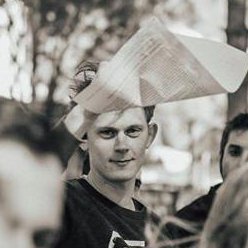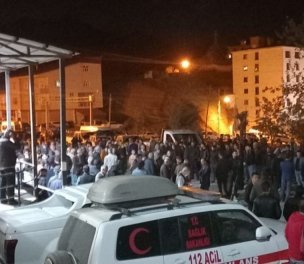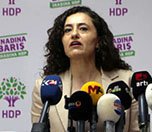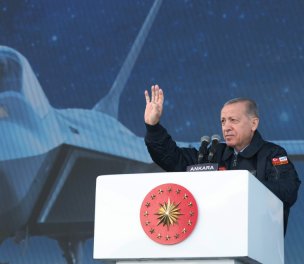With approximately 64 million eligible voters in the upcoming May 14 presidential and parliamentary elections, Turkey's 15 to 20 million population with Kurdish roots is expected to play a crucial role in determining the outcome.
In the four largest Kurdish-dominated provinces, Kemal Kılıçdaroğlu, the joint presidential candidate of the Nation's Alliance, leads with a large margin of 64 percent compared to 36 percent for incumbent President Recep Tayyip Erdoğan, Rawest Research indicates in a survey conducted between April 21 and April 29 among 5,799 people in the provinces Diyarbakır, Van, Mardin and Urfa.
Diyarbakır, Mardin, Urfa ve Van’da CB seçimleri birinci ve ikinci turunda (kararsızlar dağıtıldıktan) sonra ortaya çıkan sonuçlara göre Recep Tayyip Erdoğan, 4 il içerisinde ilk turda en yüksek oyu %57 ile Urfa'da alırken Kemal Kılıçdaroğlu %76,3 ile Diyarbakır'da almaktadır. pic.twitter.com/TwtganDQiK
— Rawest Araştırma (@RawestResearch) May 7, 2023
The Republican People's Party (CHP) leader receives the highest vote share in Diyarbakır, with 76.3 percent. In Van, where the presidential contender drew a remarkably large crowd on May 2, he gathers 73.8 percent and 66 percent in Mardin, according to the polling station.
Only Urfa's constituency seems to favor the President and leader of the Justice and Development Party (AKP), Erdoğan, securing a comfortable margin of 57 percent, compared to Kılıçdaroğlu's vote rate of 40 percent.
Outsider candidates Muharrem İnce and Sinan Oğan lag far behind, receiving between 4 to 0.1 percent of the vote in the four provinces with an estimated 5.9 million inhabitants. Furthermore, Rawest projects that support remains above 60 percent for Kılıçdaroğlu, even if a second round would occur on May 28.
CHP's Kurdish past
These high turnouts for the CHP frontrunner are remarkable as these areas aren't particularly known as a stronghold of Turkey's oldest party.
On the contrary, the CHP has been one of the least popular political parties in Kurdish regions due to its association with Turkish nationalism and severe suppression of Kurdish insurrections during its one-party rule between 1923 - 1950, which denied the existence of the Kurdish people and prohibited the public use of the Kurdish language.
More recently, in the 2010s, the CHP opposed the AKP government's "peace process" with the outlawed Kurdistan Workers' Party (PKK), an unprecedented move in the modern republic's history.
Yet, the party firmly supported AKP's military actions in northern Syria and northern Iraq against the PKK and Kurdish gains. Furthermore, the CHP rarely spoke out against the Kurdish-focused People's Democratic Party (HDP)'s marginalization and even voted to remove mandate holders' immunities in May 2016.
During the 2018 dual elections, the CHP and its presidential candidate played a minimal role, with the AKP and HDP dominating the region. The CHP received less than four percent of the vote in Van, Diyarbakır, Mardin, and Urfa, while the AKP received between 21 to 52 percent of the votes.
Growing support for Kılıçdaroğlu
However, Rawest's results and the participation of thousands of people in a rally in Van seem to be indicative of growing support for Kılıçdaroğlu. The latest polls indicate that support for the 69-year-old incumbent has melted by 8 points in the four provinces compared to the previous elections.
Whereas Erdoğan and his AKP initially garnered support from Kurdish voters in 2002 by promising more inclusive governance, many have fallen out of grace over the breakdown of peace talks with Kurdish groups in 2015 and the president's increasing nationalist stance, being in coalition with the ultra-nationalist Nationalist Movement Party (MHP) since 2018.
Moreover, in the last weeks, many politicians from the Kurdish-dominated HDP, who are running in the upcoming election under the Green Left Party (YSP) due to a looming closure case, have upped their rhetoric to mobilize its voters to cast their ballots in favor of the 74-year-old Kılıçdaroğlu, even though the party is not part of CHP's electoral alliance.
Selahattin Demirtaş, the former co-chair of the HDP and imprisoned since 2016 on charges related to terrorism, ruled as illegal by the European Court of Human Rights (ECHR) in 2020, voiced his explicit backing on Twitter on May 4 "I sincerely believe that you will end segregation, ensure social peace, and bring prosperity to Turkey. My vote is for you, Mr. #President Kılıçdaroğlu."
Türkiye'nin 13. Cumhurbaşkanı Sayın Kılıçdaroğlu,
— Selahattin Demirtaş (@hdpdemirtas) May 3, 2023
Allah yolunuzu açık etsin.
Ayrışmayı bitireceğinize, toplumsal barışı sağlayacağınıza, Türkiye'yi refaha, huzura kavuşturacağınıza yürekten inanıyorum.
Benim oyum sizedir, Sayın #CumhurbaşkanıKılıçdaroğlu pic.twitter.com/BQlJQAxKNy
Kılıçdaroğlu has promised to adhere to ECHR rulings which would result in the release of prominent figures such as Demirtaş and philanthropist Osman Kavala.
At the May 2 Van rally, CHP İstanbul Mayor Ekrem İmamoğlu, who faces incarceration and a political ban in an internationally condemned case for 'insulting a public official' in the aftermath of the turbulent 2019 İstanbul Mayoral elections, repeated these claims, stating that justice is not only for him nor for Selahattin.
"The decision of a fair court does not hurt anyone," he told the crowd, where YSP flags were visible between CHP banners.
'One vote for the YSP, one for Kılıçdaroğlu'
The strategy of "one vote for the YSP, one for Kılıçdaroğlu" appears to bear fruit at the polls in the eastern provinces as Rawest's data shows that only 1.9 percent of HDP voters will cast their ballots for President Erdoğan, while a significant 90 percent are in favor for the CHP leader on May 14.
Seçimin iki turu arasında dünya 14 kez dönecek.
— Selahattin Demirtaş (@hdpdemirtas) May 5, 2023
Risk almayın gençler. İlk turda bitirelim, devran bir defa dönsün.
1 oy Yeşil Sol Parti’ye
1 oy Kılıçdaroğlu’na pic.twitter.com/KcnSpTlq0Q
Meanwhile, President Erdoğan has resorted to accusing the opposition of cooperating with the PKK, "My nation will not hand over power to them if they are elected president by the support they get from Qandil," he said on May 1, referring to a mountain range in Iraqi Kurdistan, which is a major bulwark of the PKK. (WM/VK)





.jpg)




.jpg)
.jpg)
.jpg)
.jpg)
.jpg)